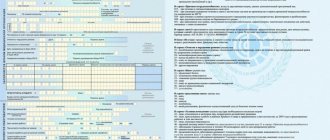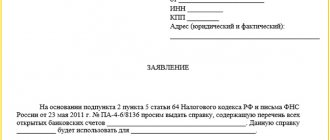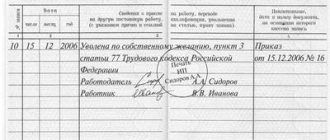Each of us can talk about the certificate of incapacity for work, which sometimes plays a decisive role in the life of an employee, an employer, as well as a medical organization in protecting the rights and interests in a certain situation. In common parlance we call it “sick leave”.
The legislation of the Russian Federation regulating the procedure for its issuance, renewal and registration is quite voluminous and complex.
First of all, it should be noted that this document, which is also a document of strict financial reporting, entails the emergence of the right of a certain category of persons to receive a certain type of benefits, namely benefits for temporary disability, as well as for pregnancy and childbirth.
The employer, in turn, upon receiving this document, must fulfill a number of obligations in relation to the employee, as well as the insurer (Social Insurance Fund), entering into sometimes confusing legal relations regarding compulsory social insurance in case of temporary disability and in connection with maternity.
One cannot help but recall a specialized financial and credit institution, namely the Social Insurance Fund, which functions as a supervisory body overseeing the procedure for issuing, extending and processing a certificate of incapacity for work.
And the most important and important role, in our opinion, in all these relationships with the certificate of incapacity, of course, is played by the medical organization and medical workers who directly issue and draw up the specified document, predetermining the relationship of the above persons.
This document sometimes creates a number of difficulties for them, sometimes leading in a certain situation to the dock.
All this and much more will be discussed below.
On the legal regulation of issues of issuing and issuing certificates of incapacity for work
Currently, issues of issuing, extending and issuing certificates of incapacity for work are regulated by the following regulatory legal acts:
- Federal Law No. 323-FZ of November 21, 2011 “On the fundamentals of protecting the health of citizens in the Russian Federation” (hereinafter referred to as Federal Law No. 323);
- Federal Law No. 255-FZ of December 29, 2006 “On compulsory social insurance in case of temporary disability and in connection with maternity” (hereinafter referred to as Federal Law No. 255);
- Order of the Ministry of Health of Russia dated August 23, 2016 No. 625n “On approval of the Procedure for conducting an examination of temporary disability” (hereinafter referred to as Order No. 625n, Procedure for EVN);
- Order of the Ministry of Health and Social Development of Russia dated June 29, 2011 No. 624n “On approval of the procedure for issuing certificates of incapacity for work” (hereinafter referred to as Order No. 624n, Procedure No. 624n);
- Decree of the Government of the Russian Federation dated December 16, 2017 No. 1567 “On approval of the Rules for information interaction of the insurer, policyholders, medical organizations and federal state institutions of medical and social expertise on the exchange of information for the purpose of generating a certificate of incapacity for work in the form of an electronic document” (hereinafter referred to as RF PP No. 1567) ;
- Order of the Ministry of Health of Russia No. 316, Ministry of Justice of Russia No. 185, Social Insurance Fund No. 180 dated July 14, 2003 “On approval of the Procedure for conducting an examination of temporary disability of persons sentenced to imprisonment, involved in paid work, and issuing them documents certifying temporary disability” (hereinafter – Order No. 316/185/180).
https://youtu.be/fUthSb2GwMo
Who issues
According to clause 2 of the Procedure for issuing certificates of incapacity for work by medical organizations No. 624n dated June 29, 2011, the following have the right to issue a form:
- Attending doctors:
- state, municipal and private clinics;
- anti-tuberculosis sanatoriums (if licensed);
- clinics (including prosthetics) at research institutions (according to the new rules for issuing certificates of incapacity for work - without coordination with the Ministry of Health and Social Development of the Russian Federation);
- private practitioners;
- Paramedics and dentists (with the permission of the regional Ministry of Health and the Social Insurance Fund).
- Medical workers in hospital emergency departments (since December 2008).
Typically, sick leave is opened and closed in one clinic. If the patient was sent for treatment to another medical institution, it can undertake the extension and closure of the document.
Examination of temporary disability and certificate of incapacity for work
In accordance with the current legislation of the Russian Federation, a certificate of incapacity for work is issued if there is a license for medical activities, including work (services) for the examination of temporary disability.
This provision follows from the legislation of the Russian Federation on licensing, including Decree of the Government of the Russian Federation of April 16, 2012 No. 291, as well as Order No. 624n (clause 2).
Here you should pay attention to the fact that paragraph 2 of Order No. 624n stipulates that the issuance of a certificate of incapacity for work is carried out by persons who have such a license.
The legislator identifies the examination of temporary disability as one of the types of medical examination. This provision follows from Part 1 of Article 58 of Federal Law No. 323.
At the same time, it should be noted that until recently there was no procedure for conducting an examination of temporary disability (while the procedure for issuing, extending and issuing a certificate of incapacity for work was approved by Order No. 624n back in 2011).
This procedure was approved by Order No. 625n and came into force on March 4, 2020.
Let us note that, in accordance with paragraph 2 of the EVI Procedure and Article 59 of Federal Law No. 323, the examination of temporary disability is carried out in order to determine the citizen’s ability to carry out labor activities, the need and timing of a temporary or permanent transfer of a citizen for health reasons to another job, as well as making a decision on sending a citizen to medical and social examination.
Examination of temporary disability is carried out in connection with diseases, injuries, poisoning and other conditions associated with temporary loss of ability to work, after-care in sanatorium-resort organizations, if it is necessary to care for a sick family member, in connection with quarantine, during prosthetics in inpatient conditions, in connections with pregnancy and childbirth, when adopting a child (clause 3 of the EWH Procedure).
Please note that among the most important innovations approved by the EVT Procedure is the establishment of clear regulation of which persons and in what cases the examination of temporary disability should be carried out (previously, there was a gap in the legislation regarding the definition of cases of examination of temporary disability by a paramedic and a dentist).
Thus, in paragraph 5 of the EVT Procedure it is established that the examination of temporary disability is carried out:
- attending physician;
- a paramedic in cases where he is assigned certain functions of the attending physician;
- a dentist for dental diseases in the absence of a dentist in a medical organization providing primary health care or its structural unit;
- by the medical commission of a medical organization if it is necessary to extend the certificate of incapacity for work beyond the period established by the current legislation, during which the attending physician (paramedic, dentist) has the right to single-handedly issue a certificate of incapacity for work.
Also, the EVI Procedure approved the specific necessary actions of a medical worker to conduct an examination of temporary disability. In paragraph 7 of the Procedure it is established that the attending physician (paramedic, dentist), in particular:
- establishes the diagnosis of the disease and the degree of functional disorders of organs and systems, the presence of complications and their severity based on the collection of anamnesis and complaints, and an external examination of the citizen;
- determines the terms of temporary disability in accordance with Order No. 624n;
- sends the citizen to resolve the issue of temporary disability for a temporary disability examination conducted by a medical commission of a medical organization (if it is necessary to extend the certificate of incapacity for work beyond the period established by the current legislation, during which the attending physician (paramedic, dentist) has the right to single-handedly issue a certificate of incapacity for work).
In addition, paragraph 8 of the EVI Procedure defines additional actions that are carried out by the medical commission of a medical organization (in addition to measures to analyze the causes of morbidity with temporary disability and initial disability and taking part in the development and implementation of measures to reduce them) when conducting an examination of temporary incapacity for work if it is necessary to extend the certificate of incapacity for work beyond the period established by the current legislation, during which the attending physician (paramedic, dentist) has the right to single-handedly issue a certificate of incapacity for work. These include, but are not limited to:
- assessment of the effectiveness of preventive, diagnostic, therapeutic and rehabilitation measures prescribed by a doctor (paramedic, dentist);
- extension of the period of temporary disability in accordance with Order No. 624n.
Based on the results of the examination of temporary disability, if a decision is made on the temporary inability of a citizen to carry out labor activities, he is issued a certificate of incapacity for work in the form, in the manner and within the time frame established by Order of the Ministry of Health and Social Development of the Russian Federation No. 624n and Order of the Ministry of Health and Social Development of the Russian Federation dated April 26, 2011 No. 347n “On approval of the form of the form certificate of incapacity for work” (clause 9 of the Procedure).
Actions of the attending physician and medical commission during EVN
The Procedure for Conducting EVI regulates the actions of both the attending physician and the medical commission when conducting an examination of temporary disability. For example, the attending physician must reflect in the patient’s medical documentation information about:
- the state of health of the citizen in respect of whom an examination of temporary disability is being carried out, with justification for the need for temporary release from work;
- the nature and conditions of work, social factors or the rationale for closing a certificate of incapacity for work upon restoration of working capacity;
- issued certificate of incapacity for work.
In turn, the medical commission evaluates the effectiveness of the preventive, diagnostic, therapeutic and rehabilitation measures prescribed by the attending physician; extends the period of temporary disability in accordance with Procedure No. 624n, and also reflects in the protocol the decision made based on the results of the electronic testing (clause 8 of the Procedure for conducting the electronic testing).
Persons authorized to issue certificates of incapacity for work
From the cumulative analysis of the provisions of Part 2 of Article 59 of Federal Law No. 323, the EBL Procedure (clause 5) and Procedure No. 624n (clause 2), it follows that a certificate of incapacity for work can be issued:
- attending physicians of medical organizations;
- paramedics and dentists of medical organizations;
- attending physicians of clinics of scientific research institutions (institutes), including clinics of scientific research institutions (institutes) of prosthetics or prosthetics;
- medical commissions.
At the same time, we inform you that there are categories of medical workers who do not have the right to issue certificates of incapacity for work (clause 3 of Procedure No. 624n). These include, in particular, medical workers:
- emergency medical services organizations;
- blood transfusion organizations;
- reception departments of hospital institutions;
- balneological hospitals and mud baths;
- medical organizations of a special type (centers for medical prevention, disaster medicine, forensic medical examination bureaus);
- healthcare institutions for supervision in the field of consumer rights protection and human well-being.
About the medical commission during EVN
Unfortunately, the Ministry of Health of Russia, in the new procedure for conducting EVI, identified only one case in which the examination of temporary disability is carried out by a medical commission. Meanwhile, Order No. 624n lists cases in which a certificate of incapacity for work is issued by a medical commission is quite extensive and has nothing to do with just extending the period of the certificate of incapacity for work. Such cases include: referral by medical organizations and health authorities of constituent entities of the Russian Federation of citizens for treatment to clinics of scientific research institutions (institutes) of balneology, rehabilitation physiotherapy, sanatorium and resort institutions (clause 25 of Order No. 624n), when issuing a certificate of incapacity for work to persons injured from serious accidents at work, aimed at sanatorium and resort treatment during the period of temporary disability (before referral to medical examination) (clause 32 of Order No. 624n) and others.
Persons who are issued a certificate of incapacity for work
The list of persons who are issued a certificate of incapacity for work is established both by Federal Law No. 255 (Article 2, which defines persons subject to compulsory social insurance in case of temporary disability and in connection with maternity), and by Procedure No. 624n (clause 1).
It is necessary to pay attention to the fact that both acts establish several criteria for persons who are issued a certificate of incapacity for work, namely:
- These persons must be insured in the compulsory social insurance system in case of temporary disability and in connection with maternity (part 1 of article 2 of Federal Law No. 255, paragraph 1 of Procedure No. 624n);
- These may be citizens of the Russian Federation, foreign citizens and stateless persons permanently or temporarily residing in the territory of the Russian Federation, as well as foreign citizens and stateless persons temporarily residing in the Russian Federation (with the exception of highly qualified specialists).
Under the above conditions, a certificate of incapacity for work is issued:- persons working under employment contracts;
- state civil servants, municipal employees;
- persons holding government positions in the Russian Federation, government positions in a constituent entity of the Russian Federation, as well as municipal positions filled on a permanent basis;
- members of a production cooperative who take personal labor participation in its activities;
- clergy;
- lawyers, individual entrepreneurs, members of peasant (farm) households, individuals not recognized as individual entrepreneurs (notaries engaged in private practice, other persons engaged in private practice in accordance with the procedure established by the legislation of the Russian Federation), members of family (tribal) communities of indigenous peoples of the North who voluntarily entered into legal relations under compulsory social insurance in case of temporary disability and in connection with maternity and pay insurance contributions for themselves to the Social Insurance Fund of the Russian Federation in accordance with Article 4.5 of Federal Law No. 255;
- persons sentenced to imprisonment and involved in paid work;
- other categories of persons who are subject to compulsory social insurance in case of temporary disability and in connection with maternity, compulsory social insurance against industrial accidents and occupational diseases in accordance with federal laws, subject to the payment by them or for them of insurance contributions to the Social Insurance Fund of the Russian Federation ;
- persons whose illness or injury occurred within 30 calendar days from the date of termination of work under an employment contract, performance of official or other activities, or during the period from the date of conclusion of the employment contract until the day of its cancellation.
A certificate of incapacity for work is also issued:
- women dismissed due to the liquidation of organizations, due to termination of activities as an individual entrepreneur, termination of powers by a notary engaged in private practice, termination of the status of a lawyer, for whom pregnancy occurred within 12 months before they were recognized as unemployed in the prescribed manner;
- citizens recognized as unemployed and registered with state employment services in the event of illness, injury, poisoning and other conditions associated with temporary disability, during prosthetics in a hospital, pregnancy and childbirth, when adopting a child;
- insured persons from among foreign citizens and stateless persons temporarily staying in the territory of the Russian Federation, who have lost their ability to work due to an industrial accident or occupational disease.
It should be noted that the procedure for conducting an examination of the temporary disability of persons sentenced to imprisonment, involved in paid work, and issuing a certificate of incapacity for work was approved by Order of the Ministry of Health of Russia, the Ministry of Justice of Russia, the Social Insurance Fund of the Russian Federation dated July 14, 2003 No. 316/185/180. The provisions of Order No. 624n do not apply to these legal relations with convicted persons.
Latest changes to the order
The latest changes regarding the order of the Ministry of Health and Social Development on the procedure for issuing sick leave certificates are regulated by order of the Ministry of Health of Russia dated November 28, 2017 No. 953n “On amendments to the Procedure for issuing certificates of incapacity for work, approved by order of the Ministry of Health and Social Development of the Russian Federation dated June 29, 2011 No. 624n.”
The changes to the order affected:
- The first section “General Provisions” of paragraph 1 . In the previous version of the order, a sick leave certificate was issued to insured citizens of the Russian Federation; foreign citizens permanently or temporarily residing in Russia; as well as stateless persons. In the updated order of the Ministry of Health and Social Development, foreign citizens and stateless persons temporarily staying in the Russian Federation were added to the list of persons who have the opportunity to receive a certificate of incapacity for work (in accordance with Federal Law No. 115 of July 25, 2002, the exception is highly qualified specialists).
- The fifth section “Procedure for issuing a certificate of incapacity for caring for a sick family member”, paragraph 35 . In the second paragraph of the paragraph, the changes affected the term of the certificate of incapacity for caring for a sick family member - a child under 7 years old: in the previous edition the period was 60 and 90 days a year, depending on the disease; in the latest changes, the period is not limited and amounts to the entire period of treatment. In the fourth paragraph, changes have occurred in the period of sick leave in the case of caring for a disabled child. If previously care was provided for a disabled child only until he reached the age of fifteen, while the maximum annual period of care could be only 120 calendar days, then in the new version care can be provided for a disabled child until he reaches the age of eighteen throughout the entire period of treatment. . The changes also affected the fifth and sixth paragraphs, in which the age of the child being cared for changed from 15 to 18 years.
Separately on the right of relatives of a deceased insured person to receive a certificate of incapacity for work
Order No. 624n stipulates that in the event of the death of the insured person during a period of temporary disability, the certificate of incapacity for work is closed with the date of death and the code “34” is entered in the specified document (clause 61).
On this issue, the FSS of the Russian Federation in its letter dated 07/08/2015 No. 02-09-11/15-11127 explains that the state guarantee of compliance with the rights of insured persons to protection from social insurance risks, as well as the implementation of their social guarantees are the main principles of implementation compulsory social insurance.
Also, the FSS of the Russian Federation, referring to the provisions of Procedure No. 624n, Federal Law No. 255, and other acts, indicates that in the event of temporary disability ending in the death of the insured person, the medical organization providing treatment, in accordance with Procedure No. 624n, must draw up and issue a certificate disability, on the basis of which the employer must assign and pay temporary disability benefits to the family members who presented it, who lived together with the deceased insured person, as well as to disabled dependents, regardless of joint residence.
Thus, in the event of the death of the insured person, a certificate of incapacity for work must be issued to his family members who lived with him.
Legislative framework
A certain list of legal acts is used to establish rules regarding the completion of the document in question. This implies payment and receipt. Including:
- orders developed by employees of the Ministry of Health, numbered 624 and 347;
- Law of 2006 No. 255;
- labor legislation;
- letter generated by the social fund. insurance in 2011 No. 14-03-11;
- law adopted at the federal level in 2011 No. 323.
These acts indicate how information is entered into the form in question. In addition, you will be able to learn about the filling process and the time frame for referring the company.
About the form of a certificate of incapacity for work
Currently, the form of the certificate of incapacity for work is approved by Order of the Ministry of Health and Social Development of Russia dated April 26, 2011 No. 347n. The procedure for filling out the above form of a certificate of incapacity for work is described in Chapter XI of Procedure No. 624n.
At the same time, we inform you that from July 1, 2020, the legislator introduced the ability to issue a certificate of incapacity not only in the form of a document on paper, but also to generate it in the form of an electronic document signed using an enhanced qualified electronic signature by a medical worker and a medical organization (electronically form, a certificate of incapacity for work can only be generated with the written consent of the patient).
Let us note that the ability to generate an electronic certificate of incapacity for work was established by Article 59 of the Federal Law No. 323 as amended by the Federal Law of May 1, 2017 No. 86-FZ.
In addition, in order to generate a certificate of incapacity for work in the form of an electronic document, the Government of the Russian Federation in the RF PP No. 1567 approved the rules for information interaction between the insurer, policyholders, medical organizations and federal state institutions of medical and social expertise for the exchange of information.
At the same time, we inform you that in practice, the issuance of “electronic sick leave” is currently still impossible, since the appropriate procedure regulating the rules for its registration has not been approved (the procedure for generating certificates of incapacity for work in the form of an electronic document is subject to establishment by the Ministry of Health of the Russian Federation, as agreed with the Russian Ministry of Labor and the Social Insurance Fund of the Russian Federation).
Detailed information about the features of issuing an electronic certificate of incapacity for work is presented in the article of the FACULTY OF MEDICAL LAW “Electronic certificate of incapacity for work.”
Basic rules for issuing a certificate of incapacity for work
It is important to note that the issuance of a certificate of incapacity for work is carried out upon presentation of an identity document (clause 4 of Procedure No. 624n). These include a passport of a citizen of the Russian Federation, a passport of a foreign citizen, a residence permit, and others.
The issuance and extension of a certificate of incapacity for work is carried out by a medical worker after examining the citizen and recording data on his state of health in the medical record of an outpatient (inpatient) patient, justifying the need for temporary release from work. It should be noted that if a citizen has not been examined by a medical professional, this is grounds for refusal to issue a certificate of incapacity for work due to the provisions of paragraph 2 of paragraph 14 of Procedure 624n. In this case, as noted in this norm, the issuance and extension of a certificate of incapacity for work over the past period of time can be carried out in exceptional cases by decision of the medical commission when a citizen applies to a medical organization or a medical worker visits him at home.
The exceptional cases themselves are not established in Order No. 624n. Thus, this is the prerogative of the medical commission, but is based on the actual grounds for issuing a certificate of incapacity for work.
A certificate of incapacity for work is issued to a citizen by a medical organization on the day of application; the form is issued at his request on the day of application or on the day the certificate of incapacity for work is closed.
A certificate of incapacity for work is issued by a medical organization on the day of application if the citizen is sent (applies) for treatment to another medical organization.
The extension and (or) closure of the certificate of incapacity for work is carried out by the medical organization to which the citizen was referred (applied) for treatment.
Note: please note that the extension of a certificate of incapacity for work issued by another (i.e. previous) medical organization and filling out the free lines in it in the table “Exemption from work” are not allowed (in this case, the extension of a certificate of incapacity for work means the issuance of a “continuation » a certificate of incapacity for work issued by a previous medical organization on a new form with the simultaneous closing of the previous certificate of incapacity for work for submission for payment). If necessary (to continue treatment), the new medical organization can only issue a new certificate of incapacity for work. We note that this position was presented by the Federal Social Insurance Fund of the Russian Federation in Letter dated May 22, 2017 No. 02-09-11/22-03-11096 “On the issue of extension and registration by a medical organization of a certificate of incapacity for work issued on a paper form by another medical organization.”
In case of long-term treatment, the medical organization issues a new certificate of incapacity for work (continued) and at the same time draws up the previous certificate of incapacity for work to assign and pay benefits for temporary disability, pregnancy and childbirth.
In the case where a citizen who is incapacitated for work on the day of discharge from the hospital is able to work in the medical organization to which he was sent to continue treatment, the medical organization fills out the line “Get to work” on the certificate of incapacity and closes it.
Issuance of a certificate of incapacity for work during a period of temporary incapacity for work abroad
Documents confirming the temporary disability of citizens during their stay abroad (after a legalized transfer), by decision of the medical commission of a medical organization (hereinafter referred to as the medical commission), can be replaced with certificates of incapacity for work of the standard standard in the Russian Federation.
The main cases of issuing a certificate of incapacity for work
The main cases of issuing a certificate of incapacity for work (in other words, cases of providing benefits for temporary disability) are established both by Federal Law No. 255 and Federal Law No. 323 (Article 59), and indirectly follow from the provisions of Procedure No. 324n.
In accordance with Article 5 of Federal Law No. 255, such cases include:
- loss of ability to work due to illness or injury, including in connection with an operation for artificial termination of pregnancy or in vitro fertilization;
- the need to care for a sick family member;
- quarantine of the insured person, as well as quarantine of a child under 7 years of age attending a preschool educational organization, or another family member recognized as legally incompetent in accordance with the established procedure;
- implementation of prosthetics for medical reasons in a hospital specialized institution;
- follow-up treatment in the prescribed manner in sanatorium-resort organizations located on the territory of the Russian Federation, immediately after the provision of medical care in an inpatient setting.
In addition, part 1 of Article 59 of Federal Law No. 323, as well as Federal Law No. 255 and Procedure No. 624n include the following in cases of issuing a certificate of incapacity for work:
- pregnancy and childbirth;
- adoption of a child.
It should also be noted that, although this is not directly stated, it follows from paragraph 20 of Procedure No. 624n that the case of issuing a certificate of incapacity for work also applies - when sent by court decision for a forensic medical or forensic psychiatric examination, and recognition of such examination of a disabled person. In this case, a certificate of incapacity for work is issued from the day the citizen appears for the examination (clause 20 of Procedure No. 624n).
More details about the features of issuing a certificate of incapacity for work on the above grounds can be found in the article: “Features of issuing a certificate of incapacity for work.”
Persons who are not issued a certificate of incapacity for work
In accordance with the current legislation of the Russian Federation, a certificate of incapacity for work is not issued:
- those who seek medical help from a medical organization if they do not show signs of temporary disability (clause 26 of Order No. 624n);
- undergoing a medical examination, medical examination or treatment at the direction of military commissariats (clause 26 of Order No. 624n);
- in custody or administrative arrest (clause 26 of Order No. 624n, clause 3 of part 1 of article 9 of Federal Law No. 255);
- undergoing periodic medical examinations (examinations), including in pathology centers (clause 26 of Order No. 624n);
- with chronic diseases without exacerbation (worsening), undergoing examination, taking various procedures and manipulations in an outpatient setting (clause 26 of Order No. 624n);
- students of educational institutions of primary vocational, secondary vocational and higher vocational education, and institutions of postgraduate vocational education (clause 26 of Order No. 624n);
- for the past days when the citizen was not examined by a medical professional (clause 14 of Order No. 624n);
- during the period of release of the employee from work with full or partial retention of wages or without payment in accordance with the legislation of the Russian Federation, with the exception of cases of loss of ability by the employee due to illness or injury during the period of annual paid leave (clause 1 of part 1 of article 9 of Federal Law No. 255);
- during the period of suspension from work in accordance with the legislation of the Russian Federation, if wages are not accrued for this period (clause 2 of part 1 of article 9 of Federal Law No. 255);
- during the period of conducting a forensic medical examination (clause 4 of part 1 of article 9 of Federal Law No. 255);
- during the downtime period, with the exception of when temporary disability occurred before the downtime period and continued during the downtime period (clause 5 of part 1 of article 9 of Federal Law No. 255 in conjunction with part 7 of article 7 of Federal Law No. 255).
In addition, a certificate of incapacity for work is not issued for care (clause 40 of Procedure No. 624n):
- for a sick family member over 15 years of age during inpatient treatment;
- for chronic patients during remission;
- during the period of annual paid leave and unpaid leave;
- during maternity leave;
- during the period of parental leave until the child reaches the age of 3 years, with the exception of cases of work performed during the specified period on a part-time basis or at home.
Persons entitled to receive a disability certificate
Persons who have taken out social insurance and made appropriate contributions to the Social Insurance Fund are entitled to a certificate of incapacity for work:
- those who have entered into an official employment contract;
- employees of state and municipal structures;
- fired employees;
- clergy;
- farm workers;
- IP;
- lawyers and notaries;
- residents of the territories of the Far North or areas equivalent to them;
- women dismissed due to the liquidation of an enterprise, who ceased activities as individual entrepreneurs, engaged in private legal practice, upon pregnancy within 12 months, before they are recognized as unemployed;
- citizens recognized as unemployed and registered with the Employment Center;
- students of primary, secondary, and higher education institutions engaged in labor activities under a contract or during practical training.
Dismissed employees are entitled to sick pay from their last employer.
Employees whose employment contract has been terminated may be issued a LL if a number of conditions are met:
- No more than 30 days have passed since the dismissal.
- Sick leave was provided to the organization within six months from the date of its closure.
- The employee has not yet started a new job.
- The temporary disability certificate is issued for oneself, and not for caring for a sick relative.
But there are also categories of citizens who do not have the right to issue a ballot.
Deadlines for issuing certificates of incapacity for work
The deadlines for issuing certificates of incapacity for work for illnesses, occupational diseases, and injuries are established by Section II of Order No. 624n.
Thus, paragraph 11 provides that during outpatient treatment of diseases (injuries), poisonings and other conditions associated with temporary loss of citizens’ ability to work, the attending physician alone issues citizens a certificate of incapacity for work for a period of up to 15 calendar days inclusive. For periods of temporary incapacity for work exceeding 15 calendar days, a certificate of incapacity for work is issued and extended by decision of the medical commission appointed by the head of the medical organization.
A similar provision is enshrined in parts 2 and 3 of Article 59 of Federal Law No. 323. However, the said Federal Law No. 323 establishes that the specified medical commission is appointed from among doctors who have been trained in the examination of temporary disability.
Also, by decision of the medical commission, with a favorable clinical and work prognosis, a certificate of incapacity for work can be issued in the prescribed manner until the day of restoration of working capacity, but for a period of no more than 10 months, and in some cases (injuries, conditions after reconstructive operations, tuberculosis) - for a period no more than 12 months, with a frequency of extension by decision of the medical commission no less than every 15 calendar days (clause 13 of Order No. 624n).
More details about the timing of issuing certificates of incapacity for work on various grounds provided for by Order No. 624n can be found in the article: “Features of issuing certificates of incapacity for work.”
A certificate of incapacity for work is issued:
- citizens of the Russian Federation, foreign citizens, including citizens of CIS member states, stateless persons, refugees and internally displaced persons working at enterprises and organizations of the Russian Federation. regardless of the form of ownership;
- citizens whose disability or maternity leave occurred within a month after dismissal from work for a good reason.
- citizens recognized as unemployed and registered with territorial labor and employment authorities.
- former military personnel discharged from military service from the Armed Forces of the Russian Federation, upon the onset of incapacity for work within a month after dismissal.
The period for which a certificate of incapacity for work is provided.
The attending physician has the right to issue a certificate of incapacity for work individually and at a time for a period of up to 10 calendar days; extends it individually for a period of up to 30 calendar days. A one-time and individual extension of a certificate of incapacity for work for a period of 11 to 30 calendar days is carried out for a period of no more than 10 calendar days.
In cases where temporary disability continues for more than 30 calendar days, according to the decision of the EEC, with a favorable clinical and labor prognosis, the certificate of incapacity for work can be extended until full restoration of working capacity, but not more than 10 months, and in some cases (tuberculosis, injuries, reconstructive operations ) up to 12 months.
Doctors engaged in private medical practice have the right to issue documents certifying the temporary disability of citizens for a period of no more than 30 calendar days.
The average medical worker individually and at a time issues a certificate of incapacity for work for a period of up to 5 days and extends it for up to 10 calendar days.
The terms for which the issuance of a certificate of incapacity for work in a hospital setting is provided.
In a hospital setting, a certificate of incapacity for work is issued for the entire period of inpatient treatment and signed by the attending physician and the head of the department. If the total period of temporary disability is more than 30 days, then further extension of the certificate of incapacity for work is carried out with the permission of the EEC. Upon discharge from the hospital, a certificate of incapacity for work is issued for the entire period of inpatient treatment, for non-residents - if the incapacity for work continues, taking into account the days for travel to the place of residence
51. Types of temporary disability. Rules for issuing certificates of incapacity for work during sanatorium-resort treatment, prosthetics, and quarantine.
Features of issuing certificates of incapacity for work during sanatorium-resort treatment and medical rehabilitation.
A certificate of incapacity for work for sanatorium-resort treatment is issued for the number of days missing for the next vacation and travel time. In the case of using leave before leaving for the sanatorium and when the administration grants leave without pay, a certificate of incapacity for work is issued for the period of treatment and travel, minus the days of leave.
Features of issuing certificates of incapacity for work during quarantine.
In case of temporary suspension from work of persons who have been in contact with infectious patients or due to bacterial carriage, certificates of incapacity for work are issued upon the recommendation of an epidemiologist at a health care facility by an infectious disease specialist or attending physician. The duration of suspension from work in these cases is determined by the periods of isolation of persons who have had infectious diseases or have come into contact with them.
Features of issuing a certificate of incapacity for prosthetics.
When installing prosthetics in inpatient conditions at prosthetic and orthopedic enterprises, a certificate of incapacity for work is issued for the entire period of stay in the hospital and days of travel. Citizens receiving prosthetics in an outpatient setting are not issued a certificate of incapacity for work. In the column “type of disability” it is written about.
Classification of injuries in the examination of temporary disability.
In EWH, injuries are usually divided into domestic and industrial.
Domestic trauma is damage that occurs in everyday life, accompanied by dysfunction of organs and systems of varying severity and leading to loss of ability to work.
Work injury.
An industrial accident is an event as a result of which the insured person received injury or other damage to health during the performance of his duties under an employment contract or contract and in other cases provided for by law, both on the territory of the insured and outside it, or while traveling from work and for work on the insurer’s transport, which resulted in the need to transfer to another job, temporary or permanent loss of ability to work, or his death.
52. Rules for issuing certificates of incapacity for caring for a patient (child and adult)
Features of issuing a certificate of incapacity for caring for a sick child under 7 years of age.
For caring for a child under 7 years of age, both during outpatient and inpatient treatment, a certificate of incapacity for work is issued for the entire period of acute illness or until remission occurs in case of exacerbation of a chronic disease.
The procedure for securing and storing a certificate of incapacity for work
The procedure for providing and storing certificates of incapacity for work is established by Order of the Federal Social Insurance Fund of the Russian Federation and the Ministry of Health of Russia dated January 29, 2004 No. 18/29 “On approval of the Instructions on the procedure for providing forms of certificates of incapacity for work, their recording and storage” (hereinafter referred to as the Procedure for storing medical certificates).
Thus, the specified regulatory legal act establishes that the production of forms of certificates of incapacity for work is provided by the Federal Social Insurance Fund of the Russian Federation. Regional branches of the Fund provide sick leave forms to medical organizations as needed, based on reports-applications for sick leave forms submitted by them for the corresponding quarter of the year.
The issuance of forms of certificates of incapacity for work is carried out with the execution of invoices in 2 copies, one of which (the first) is transferred to the medical organization, the second remains in the regional branch of the Fund.
The said act also established that forms of certificates of incapacity for work are documents of strict accountability and must be stored in special rooms, safes or in specially made cabinets, lined with galvanized iron, with reliable internal or padlocks. Premises, safes, cabinets where forms are stored must be locked and sealed.
The person responsible for receiving, storing, and issuing certificates of incapacity for work is appointed by order of the head of the organization (regional branch of the Fund, medical organization).
The responsible person receives forms of certificates of incapacity for work on the basis of a power of attorney, executed in the prescribed manner (with the signature of the manager, chief accountant, certified by a round seal).
The attending physicians of a medical organization (in some cases, paramedics, dentists) or employees of a medical organization who issue certificates of incapacity for work centrally, on the basis of an order from the head of a medical organization, receive forms of certificates of incapacity for work, stitched in the upper left corner, under a report from the responsible person. When receiving new forms of certificates of incapacity for work, these persons are required to hand over the counterfoils of previously received forms.
Retention periods for certificates of incapacity for work
The retention periods for sick leave certificates with the employer are established both by the Procedure for storing personal injury certificates and by Order of the Ministry of Culture of Russia dated August 25, 2010 No. 558.
In addition, clause 12 of the Procedure for storing damaged personal information and the spines of forms of certificates of incapacity for work are stored in medical organizations for 3 years, after which they are destroyed in the same organization in accordance with the Act on the destruction of spines of forms of certificates of incapacity for work, the storage period of which has expired.










